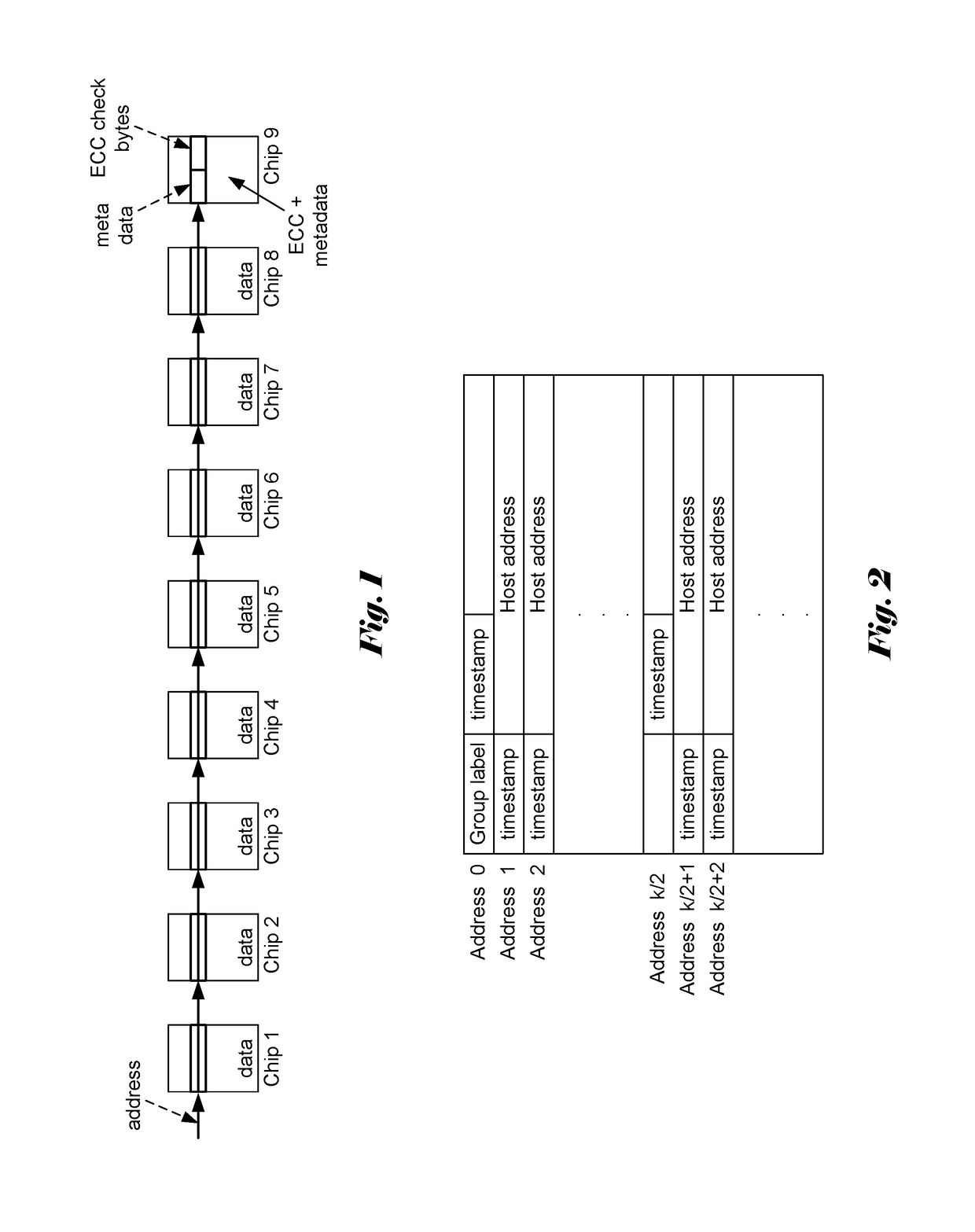Apparatus and Method of Wear Leveling for Storage Class Memory
a technology of storage class and wear leveling, applied in the field of memory control, can solve the problems of increasing the overhead of accessing the disk, c) and d), and the data size of interest is getting bigger and bigger
- Summary
- Abstract
- Description
- Claims
- Application Information
AI Technical Summary
Benefits of technology
Problems solved by technology
Method used
Image
Examples
Embodiment Construction
[0024]The following description is of the best-contemplated mode of carrying out the invention. This description is made for the purpose of illustrating the general principles of the invention and should not be taken in a limiting sense. The scope of the invention is best determined by reference to the appended claims.
[0025]A wear leveling technique for PCRAM has been disclosed in 2009 by Qureshi et al. (M. K. Qureshi et al., “Enhancing lifetime and security of PCM-based main memory with start-gap wear leveling”, Proceedings of the 42nd Annual IEEE / ACM International Symposium on Microarchitecture, pp. 14-23, December 2009, hereafter referred as Qureshi 2009). The so-called start-gap wear-leveling is a special form of address rotation. Address rotation is a time-varying mapping between a set of input addresses (ai1, ai2, . . . , aiN) and another set of output addresses (ao1, ao2, . . . , aoM), where M>N, and the mapping is fixed within a time period T. Different ai's will be mapped t...
PUM
 Login to View More
Login to View More Abstract
Description
Claims
Application Information
 Login to View More
Login to View More - R&D
- Intellectual Property
- Life Sciences
- Materials
- Tech Scout
- Unparalleled Data Quality
- Higher Quality Content
- 60% Fewer Hallucinations
Browse by: Latest US Patents, China's latest patents, Technical Efficacy Thesaurus, Application Domain, Technology Topic, Popular Technical Reports.
© 2025 PatSnap. All rights reserved.Legal|Privacy policy|Modern Slavery Act Transparency Statement|Sitemap|About US| Contact US: help@patsnap.com



